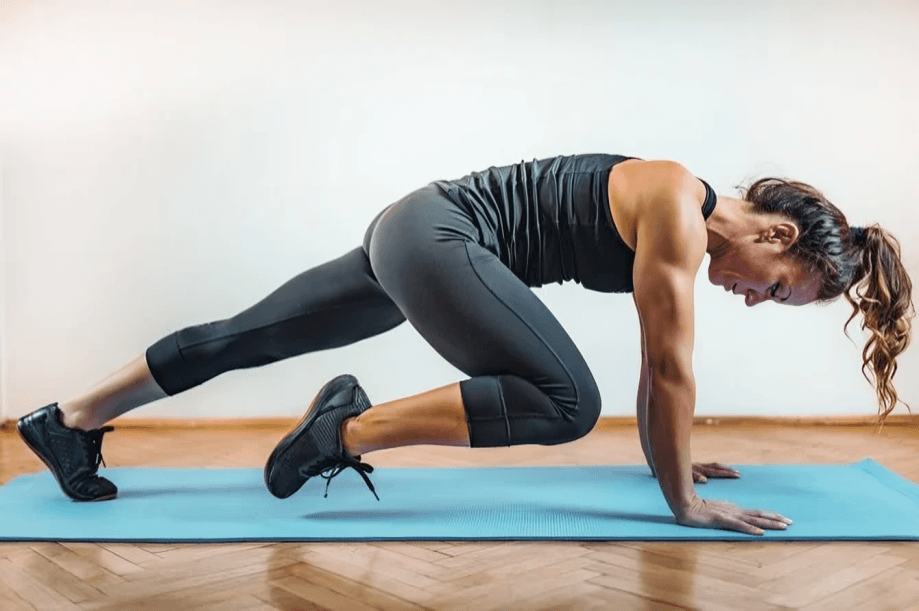
“
Exercise plays a vital role in keeping the heart strong and resilient. Whether you're walking, jogging, swimming, or doing yoga, adopting the right movements can dramatically boost cardiovascular health. Using these exercise tips to strengthen the heart, individuals can reduce blood pressure, improve circulation, and lower the risk of heart disease. 1
”
Hippocrates, the father of modern medicine, once said, “Walking is the best medicine.” Even a 30-minute daily walk can increase heart rate, circulation, and endurance without stressing the joints1
Brisk walking is a low-impact cardio workout that steadily improves heart health by lowering LDL cholesterol and blood pressure while boosting circulation and helping control body weight over time. 2

Interval training, which alternates high- and low-intensity movements, efficiently strengthens the heart muscle, burns more calories, and improves oxygen use, making the cardiovascular system more effective.
Swimming is a full-body aerobic exercise that reduces the heart's workload, improves oxygen efficiency, and promotes better blood circulation while placing minimal stress on bones and joints.3
Regular cycling increases heart rate, improves leg strength, and supports better blood flow. It's also effective in managing weight and lowering the risk of cardiovascular disease.4
Aerobic dance or Zumba combines fun with heart-strengthening benefits. It enhances cardiac endurance and improves coordination, all while keeping your heart pumping in a rhythmic, healthy pattern.5
Resistance training using light weights strengthens muscles and bones but also reduces fat mass, which helps improve blood pressure and heart function by decreasing the strain on the cardiovascular system.6
Climbing stairs is a simple yet effective cardio workout. It boosts heart rate quickly, improves stamina, strengthens lower body muscles, and supports better heart health over time with consistent effort.7

Jumping rope is an underrated but powerful aerobic activity that enhances heart rate, coordination, and bone density while also strengthening the heart by building cardiovascular endurance rapidly.
Dance-based workouts combine joy with aerobic intensity, which helps improve mood, reduce stress hormones, and strengthen the heart’s ability to adapt to exertion over time. 8
Consistency is key. Daily moderate exercise improves heart rhythm, circulation, and energy levels, reducing the risk of strokes, heart attacks, and coronary artery disease when sustained over time. 9
Yoga may seem gentle, but it helps lower resting heart rate, reduces stress hormones, and improves heart rate variability, which are all crucial for long-term heart and nervous system balance. 10
Strengthening the core through planks or pilates helps improve posture and reduce strain on the back and lungs, indirectly allowing the heart to pump more efficiently during physical activity.11
Walking after meals supports digestion and helps regulate blood sugar, which contributes to heart health. Just 15 minutes of slow walking can reduce post-meal glucose spikes and blood pressure.12
Stretching before workouts enhances flexibility, boosts circulation, and prepares the heart for increased physical demand, lowering injury risk while supporting smoother cardiovascular transitions during activity. 13

Engaging in sports like tennis or badminton raises your heart rate in bursts. These short, high-intensity intervals help build heart strength, coordination, and cardiovascular endurance efficiently.
Hiking provides a natural cardio workout that challenges the heart and lungs, especially on inclines. It also relieves mental stress, contributing to lower cortisol levels and better heart function.14
Tai Chi is a gentle, slow-motion exercise that improves balance, lowers blood pressure, and enhances overall cardiovascular health by calming the nervous system and promoting mindful movement. 15
Breathing exercises paired with physical activity train the heart to work efficiently, reduce anxiety-driven heart rate spikes, and improve oxygen delivery, which collectively ease cardiovascular strain.16
Dancing for just 20 minutes a day improves blood circulation, heart rhythm, and aerobic capacity. Its social element also reduces loneliness, which benefits emotional and cardiovascular health. 17


